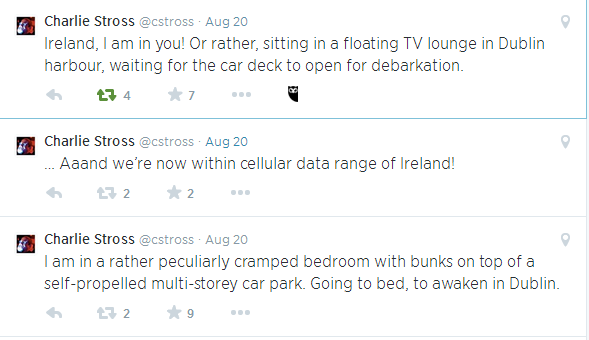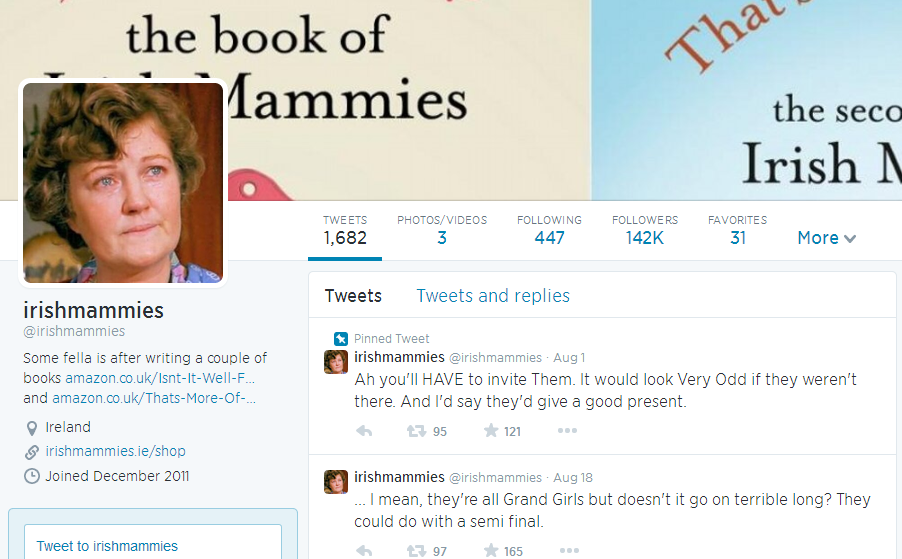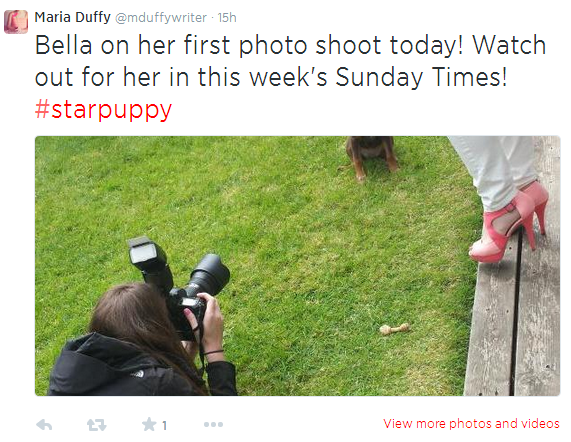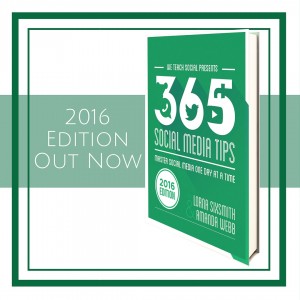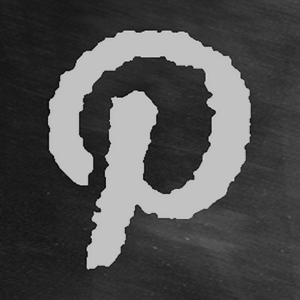 I’m a huge fan of twitter for so many reasons. The main reason is I see it as being extremely effective in terms of sales and for today’s post, I am going to concentrate on how authors can use twitter well to drive sales for their books. I found twitter to be the most effective social media tool for my crowdfunding campaign and I’ve found it to be influential in selling my book too. However, using twitter to raise the profile of your books comes with a word of caution as an inappropriate use of it can turn potential readers away and they may even unfollow you or worse still, decide that they will never read your book! This post by Tara Sparling (and the comments) reveal twitter to be a good friend to authors but a cruel enemy if used inappropriately.
I’m a huge fan of twitter for so many reasons. The main reason is I see it as being extremely effective in terms of sales and for today’s post, I am going to concentrate on how authors can use twitter well to drive sales for their books. I found twitter to be the most effective social media tool for my crowdfunding campaign and I’ve found it to be influential in selling my book too. However, using twitter to raise the profile of your books comes with a word of caution as an inappropriate use of it can turn potential readers away and they may even unfollow you or worse still, decide that they will never read your book! This post by Tara Sparling (and the comments) reveal twitter to be a good friend to authors but a cruel enemy if used inappropriately.
1. Don’t Self Promote
Many authors send self promotional tweets almost demanding that their twitter followers buy their books without giving them a good reason to do so. e.g. ‘Buy my book [insert title] today for just 99c’ or even worse, they may give their book away for free for a review. Do I want to buy a book from someone who ‘buys’ reviews. No, I do not. Remember that potential followers may look at your most recent tweets and a list of tweets all saying ‘buy me’ will turn them away. Yes, you can let your followers know if your book is available at a good price on kindle or in the shops but mix those tweets with chatty updates and with tweets showing the quality of your book.
2. Tweet in the Style of your Book
140 characters is usually too short to include an excerpt from the book within a tweet. However, if you tweet in the written style of your book or include updates on the subject matter, your target audience should find your tweets interesting. Charles Stross tweets links to his blog posts, is chatty, includes some political type tweets (similar style to his books) but is also amusing in recounting normal life.
3. Reply to Readers
Always reply to those who say they have read, enjoyed, reviewed or purchased your book. People will tweet you to tell you if they have purchased it, if they are part way through reading it, and will often tell you what they thought when they finished. Always take the time to thank them for purchasing and that you hope they enjoy it or that you look forward to hearing what they think.
If they have reviewed it (and you are happy with the review), you can link to their review with a tweet something like ‘Many thanks to XXX for reviewing my book on her blog’. If your readers have taken the time to tweet you, do take the time to respond. I always favourite and sometimes retweet their tweet of praise too just as Louise Phillips has done here.
4. Google Alerts
Set up a google alert for your name and the title of your book – then you will never miss a mention for your book as it will send you the alerts by email. Sending a tweet can be the handiest and quickest way to acknowledge it.
5. Create Content
This may seem obvious but you need to tweet on a regular basis. I just did a search for a very popular author as her book is on my list to read next. She has almost 3,000 followers but has never tweeted! Being engaging and chatty will encourage readers to talk about your books, to share their perceptions of your books and increase the ‘word of mouth’ brand awareness.
6. Background Information
It’s surprising how many people don’t complete their biography properly – you need to include that you are an author and preferably the name of your latest book. Provide a link to your website or to where the book can be purchased. The bio needs to be written in your own style so don’t be afraid to add personality. Having the cover of your book as your header photo or the background to your twitter account serves as a non pushy reminder to readers too. Colm O’Regan, author of the Irish Mammy books, tweets in the style of the books and has the front covers of both books as the header image.
7. Share Progress
Share the progress of your next book but be careful about giving too much away. I’m not sure that readers would be impressed if they buy the book and find that they have already read quite a bit of it on twitter! However, you can keep readers informed and help them feel part of the journey by letting them know how it is going. I like this tweet by Hazel Gaynor who proves that writers are perhaps as susceptible to procrastination and nerves as everyone else.
 Let people know if you are going to be in the press by sharing behind the scenes news. Maria Duffy will be featured in the Sunday Times this weekend and shares photos and updates of their new pup being photographed in her first photo shoot! Apart from wanting to read the interview with Maria, I want to see the photos of the pup too!
Let people know if you are going to be in the press by sharing behind the scenes news. Maria Duffy will be featured in the Sunday Times this weekend and shares photos and updates of their new pup being photographed in her first photo shoot! Apart from wanting to read the interview with Maria, I want to see the photos of the pup too!
8. Interesting Content for your Readers
Provide content that your readers will enjoy by searching for relevant newspaper articles, tweets, photos, blog posts – whatever is relevant to your genre and you think your readers will enjoy it. People follow you for your interesting content so try to provide it.
9. Find Relevant Tweeters To Follow
You can find people who are interested in your topic area by using Advanced Search. It can return results based on the terms used in their biography or in their tweets. Do not spam them with ‘buy me’ tweets but follow them, look at their tweets, respond to a tweet if it is relevant and a ‘conversation starter’. You can identify people of influence by using a tool like followerwonk too.
Don’t forget to create lists to categorize those you follow, for example, you might like to put writers into a ‘Writers’ list so it is easy to check their tweets on a regular basis and it means it is easier to help them promote their work and engage with them too.
10. Use Hashtags
Join in with writing conversations by using relevant hashtags and engage with other writers. Examples include #amwriting, #amreading, #writingtip, #askagent, #MustRead and of course, there are hashtags for each genre too e..g #nonfiction. There’s an emphasis on reading more female writers this year and the hashtag #readwomen2014 is being used to promote it.
Some writers create their own hashtags for their books too. Jo Baker had the hashtag #longbourn printed on the back cover of her book which meant it was easy for readers to provide feedback and even discuss the book with each other. I would recommend responding to some of these tweets – the hashtag provides a wonderful way to receive feedback and engage in conversation.
Have you any other tips to add regarding an effective use of twitter for writers and authors?





